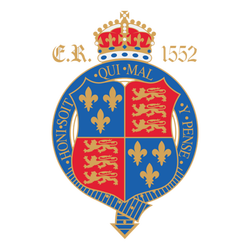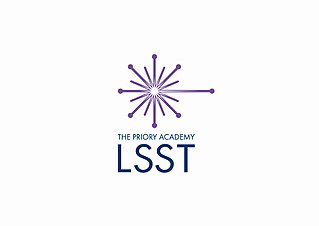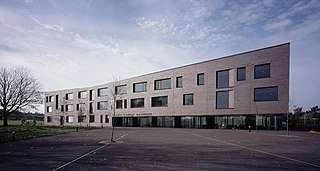
King Edward VI College (KEDST) is a selective state sixth form centre located in Stourbridge, England, in the West Midlands area.

The Priory Academy LSST is a co-educational non-selective academy school and teaching school situated on Cross O'Cliff Hill, Lincoln, Lincolnshire, England. It specialises in science, technology and teaching, and is the lead school of the Lincolnshire Teaching Schools Alliance. It is also the lead member of The Priory Federation of Academies.

Christ's College is a grade 11 to 16 secondary school administered by the Church of England that serves the Bellfields neighbourhood of Guildford, Surrey, and England.
The Independent Schools Inspectorate (ISI) is approved by the Secretary of State for Education – under section 106 of the Education and Skills Act 2008 – to inspect private schools in England. These schools are members of associations, which form the Independent Schools Council.
Lancaster Steiner School is an independent coeducational school in Lancaster, England, with classes for nursery, kindergarten and grades 1–5. The curriculum is based on the principles of Waldorf education established by Rudolf Steiner. In a 2010 report from Ofsted, the teaching at Lancaster Steiner School was described by inspectors as "frequently outstanding".
This article on the History of Waldorf schools includes descriptions of the schools' historical foundations, geographical distribution and internal governance structures.

Waldorf education, also known as Steiner education, is based on the educational philosophy of Rudolf Steiner, the founder of anthroposophy. Its educational style is holistic, intended to develop pupils' intellectual, artistic, and practical skills, with a focus on imagination and creativity. Individual teachers have a great deal of autonomy in curriculum content, teaching methods, and governance. Qualitative assessments of student work are integrated into the daily life of the classroom, with standardized testing limited to what is required to enter post-secondary education.

The Portsmouth Academy is a secondary school with academy status, located in Portsmouth, Hampshire, England on St Mary's Road in the central district of Fratton near St Mary's Church. Originally established as a girls' school, it became co-educational in the 2017/18 school year.
The Langley Academy is an academy in Langley, east of Slough in Berkshire, south east England. It opened in September 2008, replacing the former Langleywood Secondary School. The building was designed by Foster and Partners, led by the architect Norman Foster and by Buro Happold. The school is supported by the Arbib Foundation. It has a specialism of science and a museum education theme, including exhibits in the school building. It also promotes sport, notably cricket and rowing.
In the curriculum of the Waldorf schools, much of the education in academic subjects takes place in blocks, usually of 3–5 weeks duration. Each pupil generally writes and illustrates a self-created textbook representing the material learned in the block. These blocks are supported by on-going classes in subjects such as music, art and crafts, and foreign languages that continue throughout the year.

Brighton Hill Community School is a coeducational secondary school located in Brighton Hill, Basingstoke in the county of Hampshire in the south of England.
St Mary Immaculate Catholic Primary is a Catholic school in Warwick, England, for children aged 4–11. It has an on-site pre-school for children from age 2 years 9 months. The school was rated as "Good" by Ofsted in 2015 and 2019.

Steiner Schools Australia refers to the independent, private body of kindergarten, primary and secondary schools based on the Waldorf education system across Australia. Steiner Education operates in over 50 locations across the various states and territories in Australia, providing educational playgroups, kindergartens, primary schools and comprehensive K-12 school programs. Steiner Education is recognised by the Australian Curriculum Assessment and Reporting Authority (ACARA) as an ‘alternative’ form of education and operates mainly within private independent schools with a small presence within public schools as Steiner streams. Steiner schools in Australia are represented by Steiner Education Australia, a not-for-profit organisation. Steiner Education has also attracted debate and criticism for its similarities to religious forms of education from the various states and territories.

Vale of Evesham School in Evesham, in the county of Worcestershire, England, is a special needs school for around 150 mixed gender pupils aged 3 to 19 of whom approximately 35 are in the 6th form. It caters for children with special educational needs and also accommodates 15 pupils as boarders on a weekly basis.

Oasis Academy Isle of Sheppey is a coeducational secondary school and sixth form with academy status, located over two sites in Minster-on-Sea on the Isle of Sheppey in the English county of Kent. It is currently managed by the Oasis Community Learning Multi-academy Trust.
The Frank Montgomery School was a mixed-gender secondary modern school in the village of Sturry near Canterbury in east Kent. It was founded in 1935 and closed in 2007, when the site and school roll was taken over by Spires Academy.
The Ringwood Waldorf School is a private alternative school standing on the borders of Dorset and Hampshire, with classes ranging from Kindergarten to the Upper school. It educates according to the principles of Steiner Waldorf Education and has an enrollment of over 240 students.
Margaret Cross was a British educator and school principal, a pioneer of Co-education and of Steiner Waldorf education in Britain as well as of Biodynamic agriculture. Together with Hannah Clark she founded the Kings Langley Priory School, later the Rudolf Steiner School Kings Langley, which was closed in March 2019.
East Bay Waldorf School (EBWS) is an independent, non-sectarian Waldorf School in El Sobrante, California, on the east side of the San Francisco Bay. It is based on the principles of Waldorf education. Located on 91 acres of land, the school is adjacent to Wildcat Canyon, a regional park.

The Detroit Waldorf School is a private PreK-8 Waldorf school located at 2555 Burns, Detroit, Michigan, United States, in an Albert Kahn-designed school in the historic Indian Village neighborhood. In 2016, the building was designated a Michigan State Historic Site. The school is the only remaining private independent school in Detroit, and is one of the city's highest-rated schools, receiving five stars on GreatSchools.org. As of 2016, 240 students were enrolled in the school.










